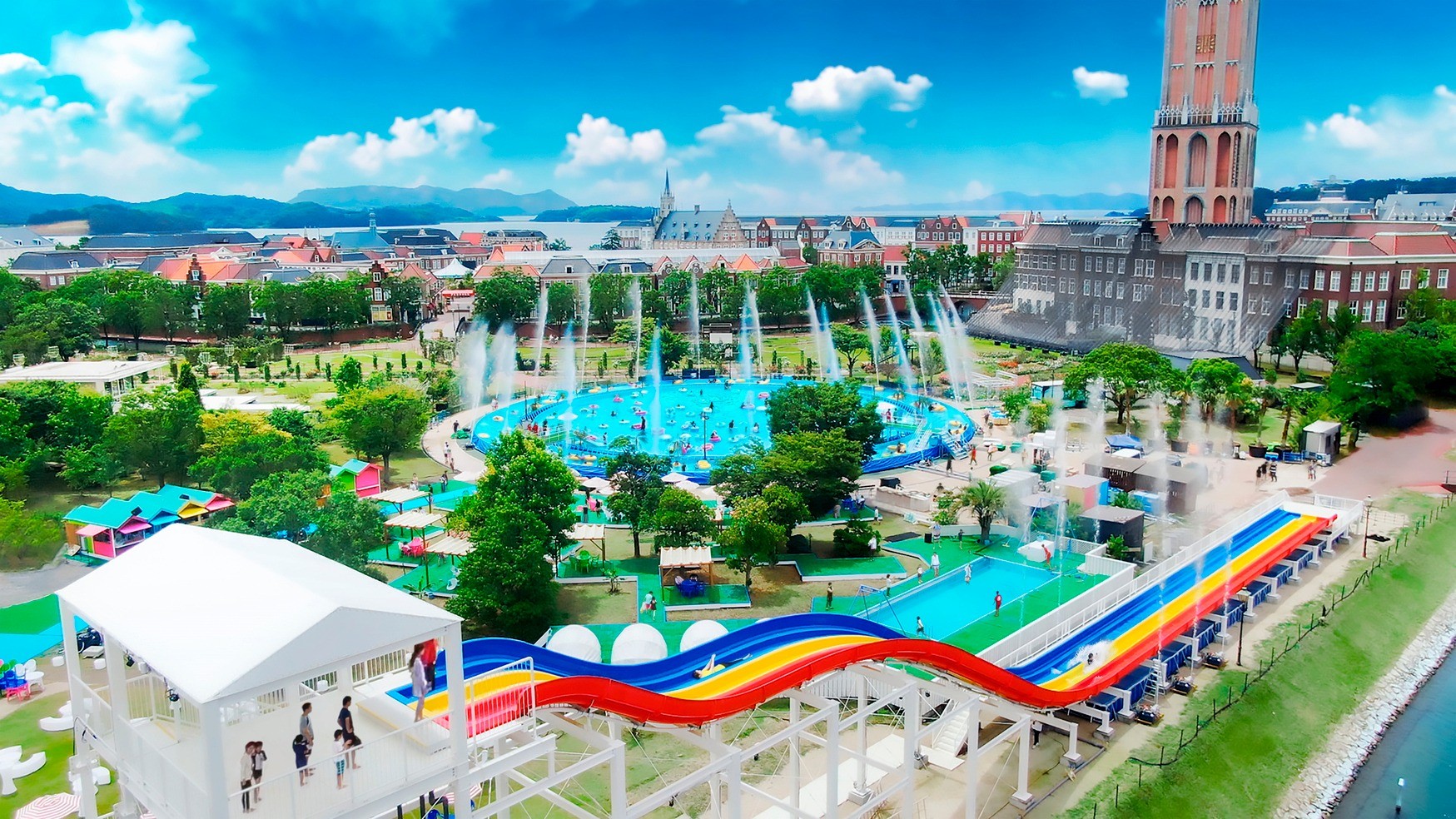Reports that the Dutch theme park Huis Ten Bosch in Japan’s Nagasaki Prefecture may be sold have led to uncertainty about the fate of a planned casino resort at the site. Travel agency H.I.S., the largest shareholder, has said it is negotiating with several entities. However, no timeline for a possible sale, nor the conditions under which the park might be sold have been announced.
The latest news rose concern about the fate of Huis Ten Bosch’s integrated resort, expected to open in the autumn of 2027, reports Japan Times. The theme park, which opened in 1992 in the port city of Sasebo and recreates the atmosphere of a traditional Dutch village, has a history of financial problems, with it going into bankruptcy in 2003 due to low attendance.
Currently, the largest shareholder is H.I.S., with a 67% stake in the park, with smaller shares owned by Kyushu Electric Power, Saibu Gas Holdings, Kyudenko, and Kyushu Railway.
Huis Ten Bosch theme park in Nagasaki
Nagasaki officials predict the planned resort would draw 6.73 million people annually. Total construction costs are estimated at ¥438.3 billion ($3.2 billion), and the project is expected to generate ¥271.6 billion ($2.01 billion) in the fiscal year starting April 2031. The operator for the Nagasaki project is set to be Casinos Austria International Japan.
Plans for the resort include a casino with 3,000 electronic gambling machines and 400 table games, as well as convention facilities with a total capacity of more than 6,000 people. Four hotels with more than 2,500 rooms in total are also planned.
Nagasaki’s casino project is currently being reviewed by the central government. A final decision on whether to grant or reject a license to operate it could come later this year.
Renderings of Casinos Austria's IR proposal next to the Huis Ten Bosch theme park in Nagasaki, Japan.
Sasebo City Mayor Norio Tomonaga told local reporters that it was unlikely the casino project would be jeopardized in the Huis Ten Bosch sale because the operator of the casino resort has already signed a contract with the park itself rather than the owner.
“In regards to the casino resort, the contract is not with H.I.S. It’s with Huis Ten Bosch, so it’s my understanding that the casino resort project is secure (in the event of a sale),” he said, according to the cited source.
Dominic Carter, CEO of the Japan-based Carter Group market research agency, which has tracked the push for casino resorts, said that done properly, a sale of Huis Ten Bosch to a new owner could help build more public support for the casino resort plan. It would, he said, represent a step toward greater respectability for a casino resort if the messaging around it is well handled.
“Nevertheless, stakeholders in favor of casino resorts need to get out in front of the public and make a detailed and transparent case for them if they want greater public support. Concerns many hold about potential social problems with the resorts need not be swept under the carpet,” he added.
Rendering for the Osaka proposed casino
Nagasaki is not alone in seeking to open an integrated resort. Osaka has submitted a bid for a casino project in the city’s Yumeshima waterfront district. A consortium led by MGM Resorts International and Orix is planning to open a venue around 2029. The project calls for an initial ¥1.8 trillion ($13.3 billion) for resort development, while projected annual sales are ¥520 billion ($3.8 billion) — ¥420 billion ($3.1 billion) of which would come from the casino, with the rest being generated by the convention facilities, hotels, and shopping areas that are part of the resort complex.
Osaka’s bid has both the support of Gov. Hirofumi Yoshimura and Mayor Ichiro Matsui, as well as the prefectural and municipal government assemblies. Despite the political support, public concern about the resort has forced Osaka Governor and the prefectural assembly to vote on whether to hold a referendum on the casino issue. More than 192,000 signatures of support for a plebiscite, greater than the legal number required, were gathered and presented to the prefecture on July 21.
“We’ve already voted on the decision to invite the casino project and are in the process of applying for approval from the central government,” Yoshimura told reporters, as reported by Japan Times.



